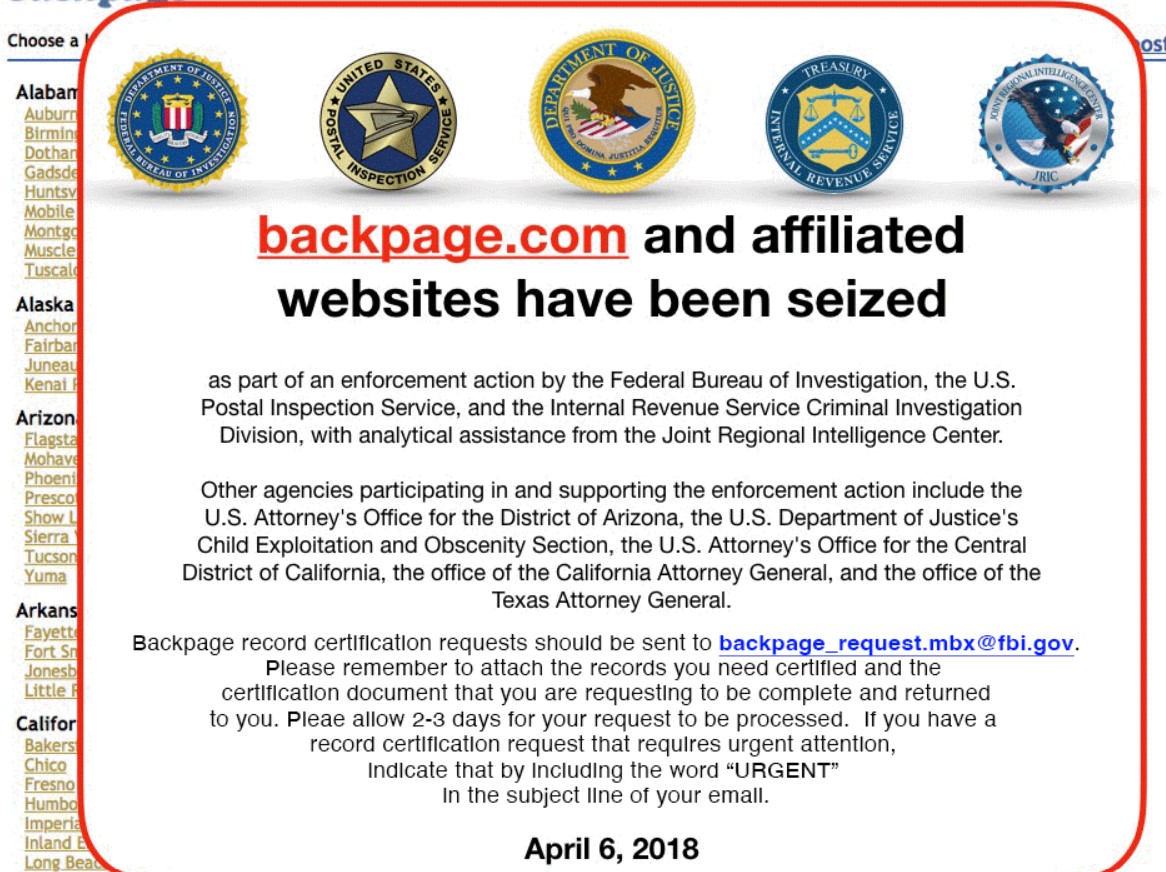PHOENIX (CN) — As a nearly deadlocked jury continues to grapple with 100 felony counts stacked against former owners and operators of Backpage.com, prosecutors seem to have inadvertently thrown yet another wrench in the case.
In a Wednesday hearing to decide whether a document disclosed by prosecutors last week should have been handed over earlier as what’s known as “Jencks material,” defense attorneys told the presiding judge that on Tuesday night they received another new document from prosecutors: an email from the government’s star witness to the IRS investigator tasked with tracking the defendants’ assets.
U.S. District Judge Diane Humetewa, a Barack Obama appointee, ruled Wednesday morning that a 90-page draft asset tracking report prepared by IRS investigator Lyndon Versoza is not Jencks material since it doesn’t constitute a statement made by a witness in the case.
Prosecutors sent the document to defense attorneys last week in anticipation of a civil forfeiture proceeding, which would follow a guilty verdict on any of the 49 money laundering counts facing Backpage co-founder Michael Lacey and two former executives Scott Spear and John Brunst.
Defense attorneys argued that because another IRS investigator who did testify, Quoc Thai, had reviewed the document before it was sent to the government, it constituted a statement by Thai. Judge Humetewa disagreed because Thai testified Tuesday that he made only “cosmetic changes” to the document, like organizing the table of contents and editing for spelling and grammar. He added that he didn’t rely on the document in preparation for his testimony.
The document includes statements made by former Backpage CEO Carl Ferrer, who testified against the Backpage team as part of a plea deal. Defense attorneys argued those statements could have been used to cross-examine Ferrer; the government countered that everything in that document was disclosed in discovery in the form of other documents and showed a paragraph-by-paragraph comparison between the draft report and other documents disclosed in discovery.
“There should not be surprise,” Humetewa said. “It has not been refuted that all of the information has been previously produced.”
While she determined in a preliminary ruling that the document wasn't Jencks material, the judge will further consider whether anything in it could be considered exculpatory to any of the five defendants.
She’ll have to make the same decision about an email sent from Ferrer to Versoza in 2018, which apparently details the results of Ferrer’s plea bargain, including how much money he was allowed to retain from forfeiture to use for his legal defense.
The government sent the email to defense attorneys around 5 p.m. Tuesday. It’s unclear why they sent it then.
Paul Cambria, representing Lacey, said the email is “clearly” Jencks material since it's a direct statement from Ferrer related to his testimony that attorneys could have used to cross-examine him.
David Eisenberg and Joy Bertand, representing Andrew Padilla and Joye Vaught, who served as moderators for Backpage, added that anything in the newly disclosed material could have changed the minds of jurors, who apparently can’t make up their minds on 99 of the 100 counts before them.
Humetewa said she hadn’t yet seen the newly disclosed email at the time of the evidentiary hearing, so she will need time to review it before further discussion. Neither the email nor a motion regarding it has been entered into the court docket as of 2 p.m.
Later, the jury asked Humetewa through a note whether good faith can be applied as a defense to all counts, as opposed to only applying to specific counts. Humetewa told jurors that good faith can be applied to all counts.
Two jurors told Humetewa Tuesday that they fear they won’t come to a unanimous decision on most of the counts.
All five defendants are charged with one count of conspiracy to facilitate prostitution in violation of the U.S. Travel Act and 50 counts of facilitating prostitution in violation of the Travel Act, represented in the indictment by 50 adult service ads posted to Backpage the prosecutors say advertised prostitution. The remaining 49 counts are made up of money laundering charges lobbed at Lacey, Spear and Brunst.
As of Tuesday, the jury had come to a unanimous decision on only one of the 100 counts.
Subscribe to Closing Arguments
Sign up for new weekly newsletter Closing Arguments to get the latest about ongoing trials, major litigation and hot cases and rulings in courthouses around the U.S. and the world.









